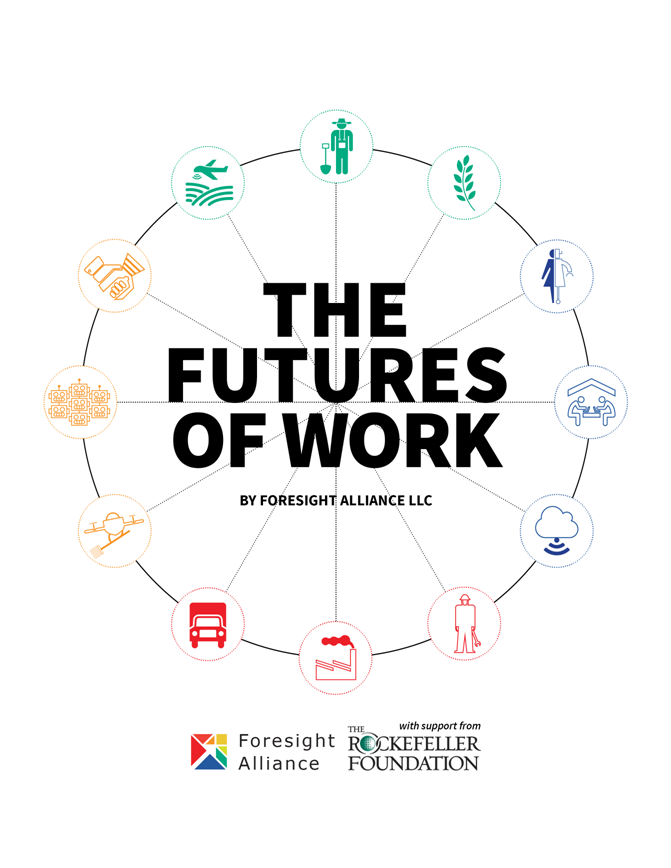 Download a Report Overview.
Download a Report Overview.
Download the The Futures of Work.
The Futures of Work illuminates global changes and disruptions emerging in the world of work. This report encapsulates a year-long study of forecasts for work and workers, supported by a grant from The Rockefeller Foundation.
Four broad themes emerged from dozens of expert interviews and a review of hundreds of forecasts on the future of work:
- Software and robotics will reshape work in nearly every industry and region—eliminating some jobs, complementing human workers in other jobs, and creating entirely new jobs. Whether machines ultimately take work from people or work alongside them, considerable turmoil is highly likely.
- Flexible and freelance work structures could speed the destruction of conventional jobs, producing an uncertain mix of insecurity and freedom for workers at every level.
- Workers in lower-income countries will need new paths to secure livelihoods in the face of these disruptive changes, as prior development models centered around rural work and manufacturing are losing their relevance.
- New structures, from income guarantees to new kinds of asset ownership, are being proposed to help ensure a positive future for workers. The Futures of Work evaluates many of the most prominent ideas.
Anyone interested in the changing nature of work, the business and policy implications of those changes, or poor and vulnerable populations, will find value in this report.
In the sea of current thinking about this urgent topic, two things make The Futures of Work unique:
- The report explores the futures of everyone from white-collar workers in high-income countries to subsistence farmers. Workers everywhere will be affected by accelerating changes to the world of work—yet very often, poor and otherwise vulnerable populations are overlooked in discussions of this topic. This report looks deeply at impacts and implications for vulnerable workers.
- The report takes a futurist perspective, using scenarios and forecasts from thought leaders to explore the boundaries of the possible and synthesize fresh insights, themes, and implications.
In light of the very real obstacles and challenges facing workers, there is a need for positive visions for the future of work. Understanding possible futures is a crucial step for those who want to develop interventions that will be robust and effective under a wide variety of possible future circumstances.

5 thoughts on “The Futures of Work”